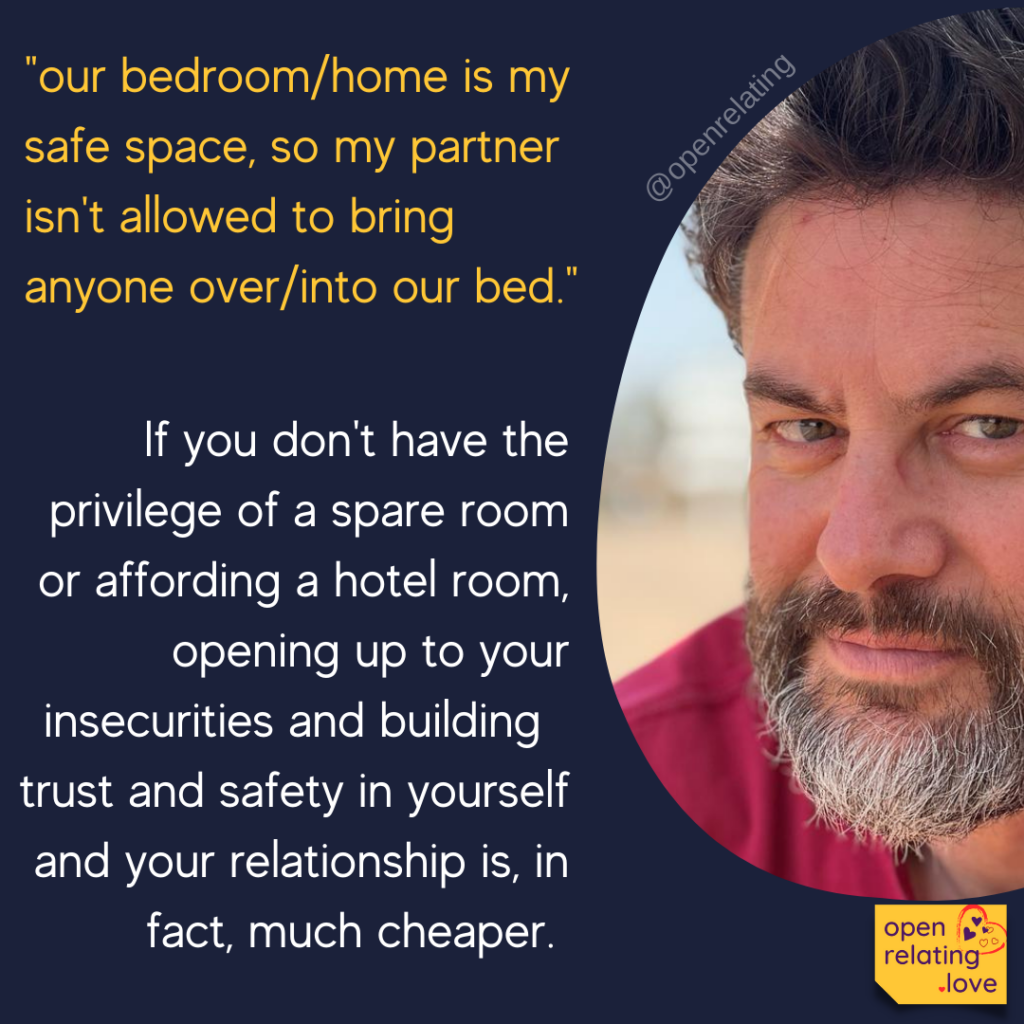What are we actually after when we define our room/house as a ‘safe space’ boundary?
Safe spaces are a hot topic with multigamous/polyamorous people, especially when it is a couple that opened up their relationship.
- “My room is my sanctuary”
- “I don’t want a stranger in my bed”
- “We have kids so no outside partners can be in the house”
- “The bedroom is my safe space”
There is no simple good/bad or yes/no solution here. People who feel they need their ‘safe’ space, really do feel that this is a physical boundary. Forcing them to give up their safety is not a good approach. At the same time, the need for this safety is indicative of deeper insecurities and an unmet need in themselves or in the relationship.

Someone who has a secure attachment and feels safe in themselves, will not mind a partner’s other partner utilising the same space. Getting to that level of safety takes time, effort and courage. It doesn’t happen overnight and can’t be hurried.
When you have the privilege of money and space, there are solutions like a guest room or a hotel room, that preempt the need to directly deal with your insecurities. Many people do not have that privilege though, so it is worth having the discussion about:
- what does the ‘safe space’ represent for me?
- can I build safety without it?
- can I gradually shrink my boundary around physical space?
- do I trust my partner to safeguard my hard boundaries when my space is being used by someone else?
Working through these questions, you may see that it is not the room or the bed that gives you safety, but the perception that these things belong to you alone. That perception is important as a defence against the fear of abandonment or other insecurities that I discuss in other articles concerning jealousy. This is an opportunity to process these fears and work out how to build resilience and improve coping strategies that don’t involve limiting your partner or yourself.







